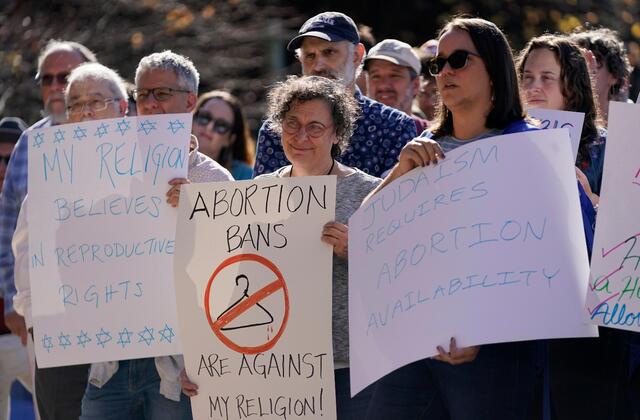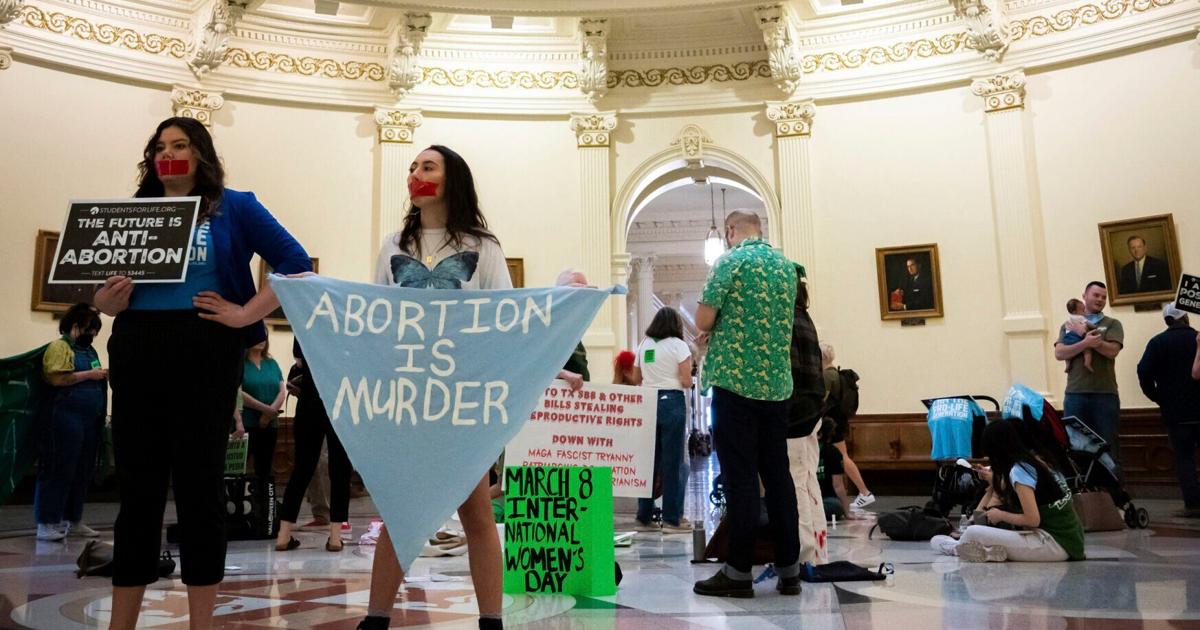A judge in Montana has rejected abortion restrictions, while the attorney general in Missouri is accusing Planned Parenthood of illegally transporting minors for abortions. New data reveals the evolving landscape of abortion provision in a nation where some states enforce bans while others safeguard access.
Over a year and a half after the U.S. Supreme Court overturned Roe v. Wade, the nationwide right to abortion remains uncertain. Lawsuits linger, and ballot questions loom, indicating a prolonged period of flux.
Here are key developments from across the country this week:
A judge in Montana has nullified abortion restrictions enacted in 2021, potentially prompting a reconsideration by the Montana Supreme Court of its 1999 decision safeguarding a woman’s right to abortion until fetal viability.
The laws from 2021, which included bans on abortion after 20 weeks gestation and telehealth prescription of abortion pills, never took effect and were halted. The state government intends to appeal the ruling, which may lead to further legal battles at the state’s highest court.
Following the landmark 2022 Supreme Court decision overturning Roe v. Wade, the landscape of abortion access has shifted dramatically. Most Republican-controlled states have implemented bans on abortion, while Democrat-controlled states have moved to protect access.

Key Updates on Abortion: Recent Court Rulings, Data, and Legislation in the US (Credits: US News)
Recent data from #WeCount for the Society of Family Planning illustrates these changes. Although the overall number of monthly abortions remains similar to pre-Roe levels, states with bans have seen a drastic decrease, while states allowing abortion have witnessed an increase, with a notable rise in telehealth-prescribed abortion pills.
Several states are utilizing videos to dissuade abortion and clarify policies. West Virginia’s Senate passed a measure requiring students to watch a video on fetal development despite objections over its accuracy. South Dakota is considering a similar video for medical providers. Meanwhile, there’s legislation in Iowa, Kentucky, and Missouri to mandate the “Baby Olivia” video used in North Dakota classrooms.
Missouri’s attorney general has filed a lawsuit against Planned Parenthood, alleging illegal transportation of minors from Missouri, where most abortions are prohibited, to Kansas for the procedure. The claim stems from a hidden camera video purportedly showing someone attempting to arrange an abortion for a fictitious 13-year-old. Planned Parenthood denies the allegation, and potential criminal charges remain uncertain.
In Texas, where abortion bans have been stringent, a prosecutor involved in a controversial abortion-related murder charge has been disciplined. The case involved a woman who self-managed an abortion and was briefly charged with murder. The prosecutor has agreed to a settlement with the State Bar of Texas, including a fine and probationary suspension of his license.
Following a recent ruling by Alabama’s Supreme Court equating frozen embryos with legal children, lawmakers are advancing bills to safeguard fertility clinics. This ruling, seen as a consequence of overturning Roe v. Wade, has prompted clinics to halt in vitro fertilization services, affecting families seeking to conceive.
Abortion rights advocates, including U.S. Health and Human Services Secretary Xavier Becerra views the ruling as part of a broader conservative agenda to confer personhood rights upon embryos and fetuses.























